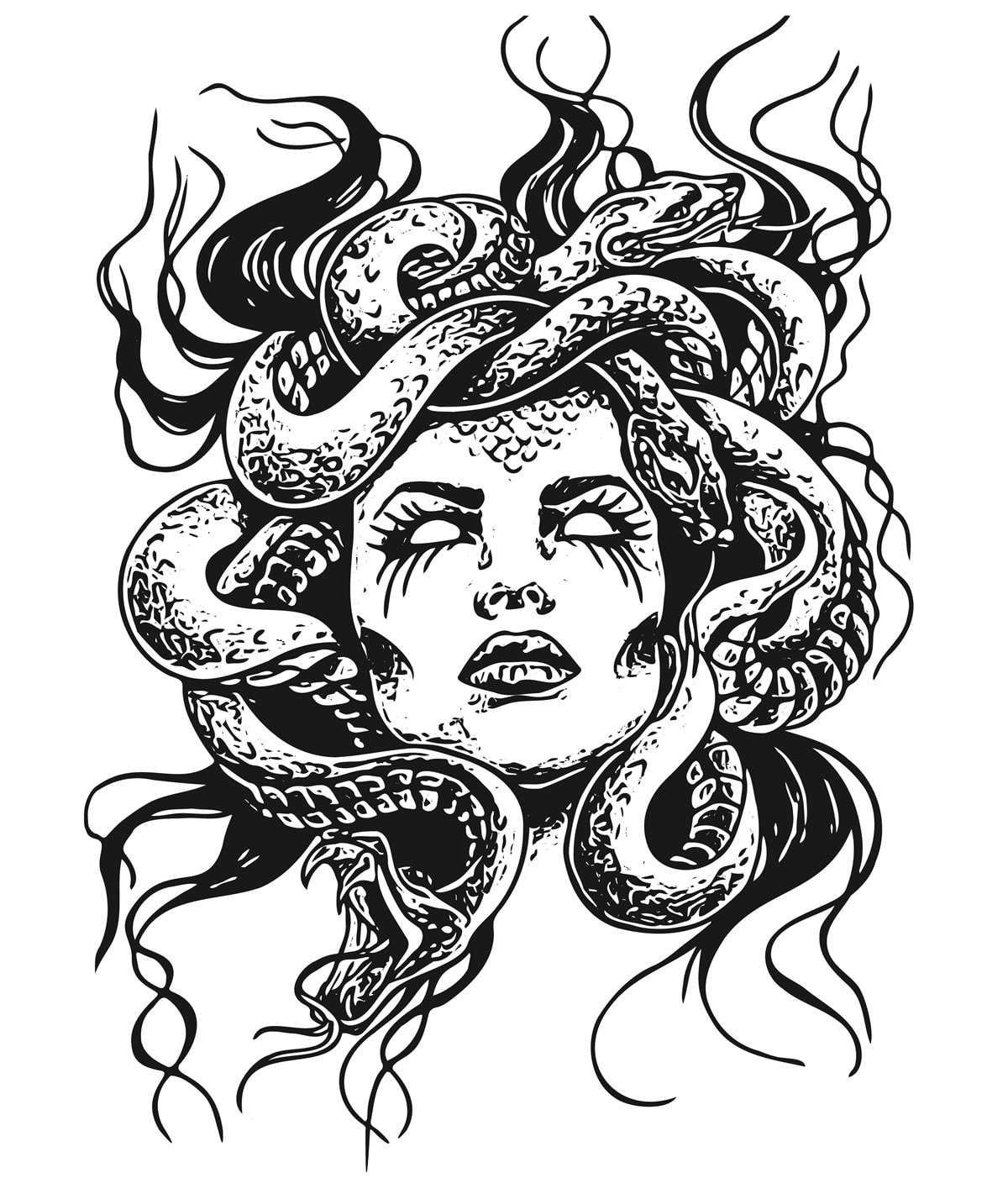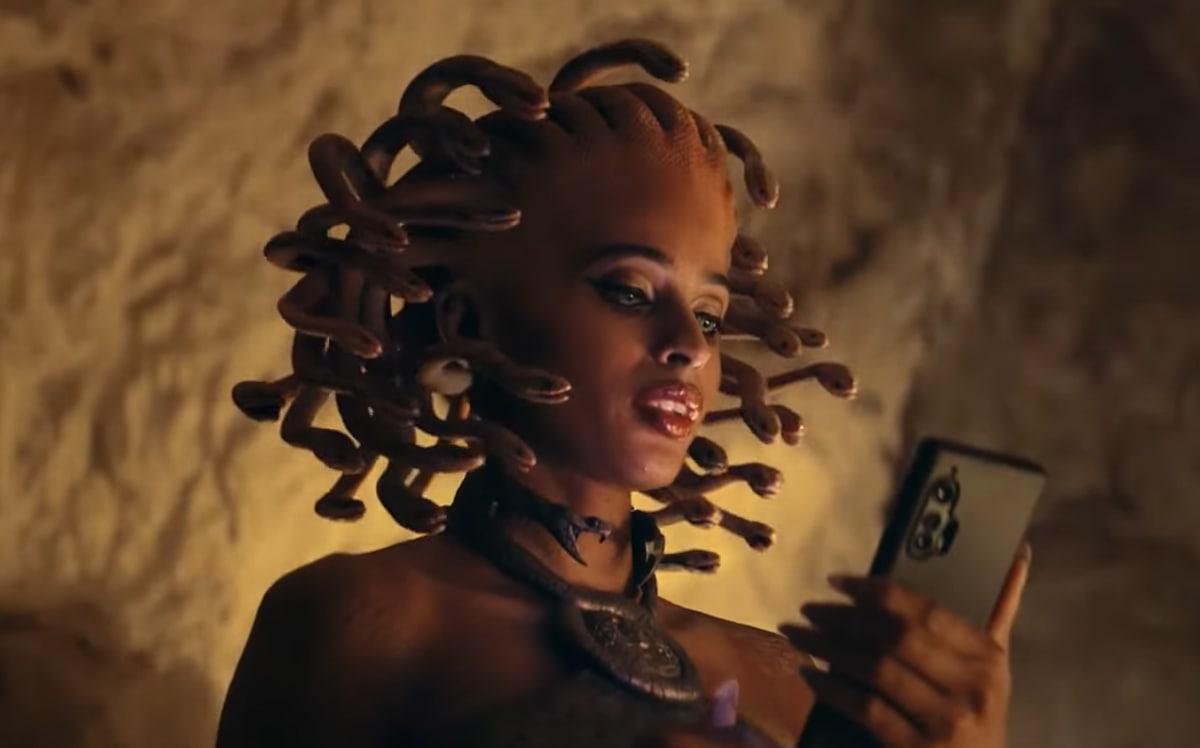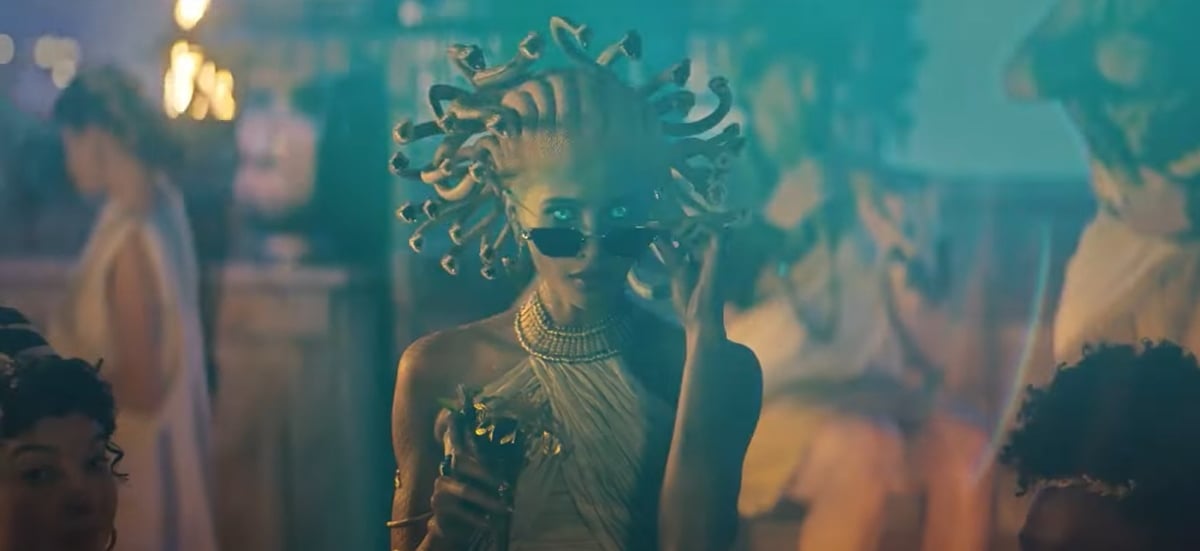Coming as a shock to absolutely no one, Amazon has come under fire for yet another bad business decision.
Surprisingly, this time it’s not for treating its many employees like chattel, but for an Amazon Prime commercial that the internet thinks is pretty sexist.
Let’s unpack this. The commercial, called “Medusa Makes Friends,” features Jesi Le Rae as Medusa and the 2018 song “Chun-Li” by Trinidadian-born rapper Nicki Minaj.
Though she looks stunning as the legendary Greek Gorgon—even while accidentally turning an unsuspecting woman, played by Lindsey Pearlman, into stone—the narrator explains, “Medusa lived with a hideous curse.”
We’re already off to a bad start.
While Medusa is often described as horrifying or ugly in traditional mythology, the Gorgon has become a symbol of empowerment for many victims of sexual assault. The Greek mythological figure is also Versace’s logo.

Instead of being “cursed” with snakes for hair and the ability to turn mortals to stone as punishment for an “illicit affair”—Medusa had been raped by Poseidon in the goddess Athena’s temple—modern analyses assert that this was actually a gift from the goddess.
With Athena’s gift, Medusa would no longer be looked upon with lustful eyes and could protect herself.
Ignoring the fact that Medusa is an important symbol for survivors of sexual assault, the commercial continues to twist the narrative.

Feeling lonely, this Medusa has the brilliant idea to buy a pair of sunglasses from Amazon Prime.
The glasses solve all of her problems—no more turning people to stone on accident—and the next scene shows Medusa strutting through a Grecian nightclub and joining her friends for a girl’s night out as Nicki Minaj’s 2018 hit song “Chun Li” blares in the background.

At this point, we could almost (…almost) forgive Amazon’s desecration of Medusa as an important symbol of hope and strength. Until the commercial takes a dark turn for the worse.
As Medusa and her pals are chatting, a man (portrayed by fitness model Diego Sebastian) winks at the Gorgon from behind the bar.
Medusa scowls (understandable, no one likes to have their GNO interrupted) and then proceeds to lower her sunglasses and turn the poor winking man into stone.

Definitely a harsh reaction over a single, flirty wink, but after all, it’s a commercial—why take it seriously? Then, the narrator says these shocking words:
“Well, he was asking for it.”
WHAT?!
Needless to say, the internet was up in arms.
“It’s essentially the equivalent of saying a woman dressed sl*tty so she deserves to be raped,” one viewer wrote. “That sh*t would never fly in today’s world, but apparently it’s okay to have double standards.”

Unfortunately, in typical Reddit fashion, many commenters chose to focus on how the commercial was “man-shaming/man-hating” and that the “girl being flirted with should be so lucky”. Ew.
The commercial is sexist—Amazon would be losing business if a female actor was said to be “asking for it”—but what many commenters fail to grasp is that the implications of “asking for it” are extremely damaging and quite frankly, unforgivable.
It has a phrase that has been used against an innumerable number of victims of sexual assault, yet the commercial makes light of it.

No one—of any gender—is “asking” to be assaulted, or in this case, turned to stone.
Some of those Reddit users owe the actresses an apology, but Amazon owes the public an apology for this commercial for its sexist and tone-deaf themes.
